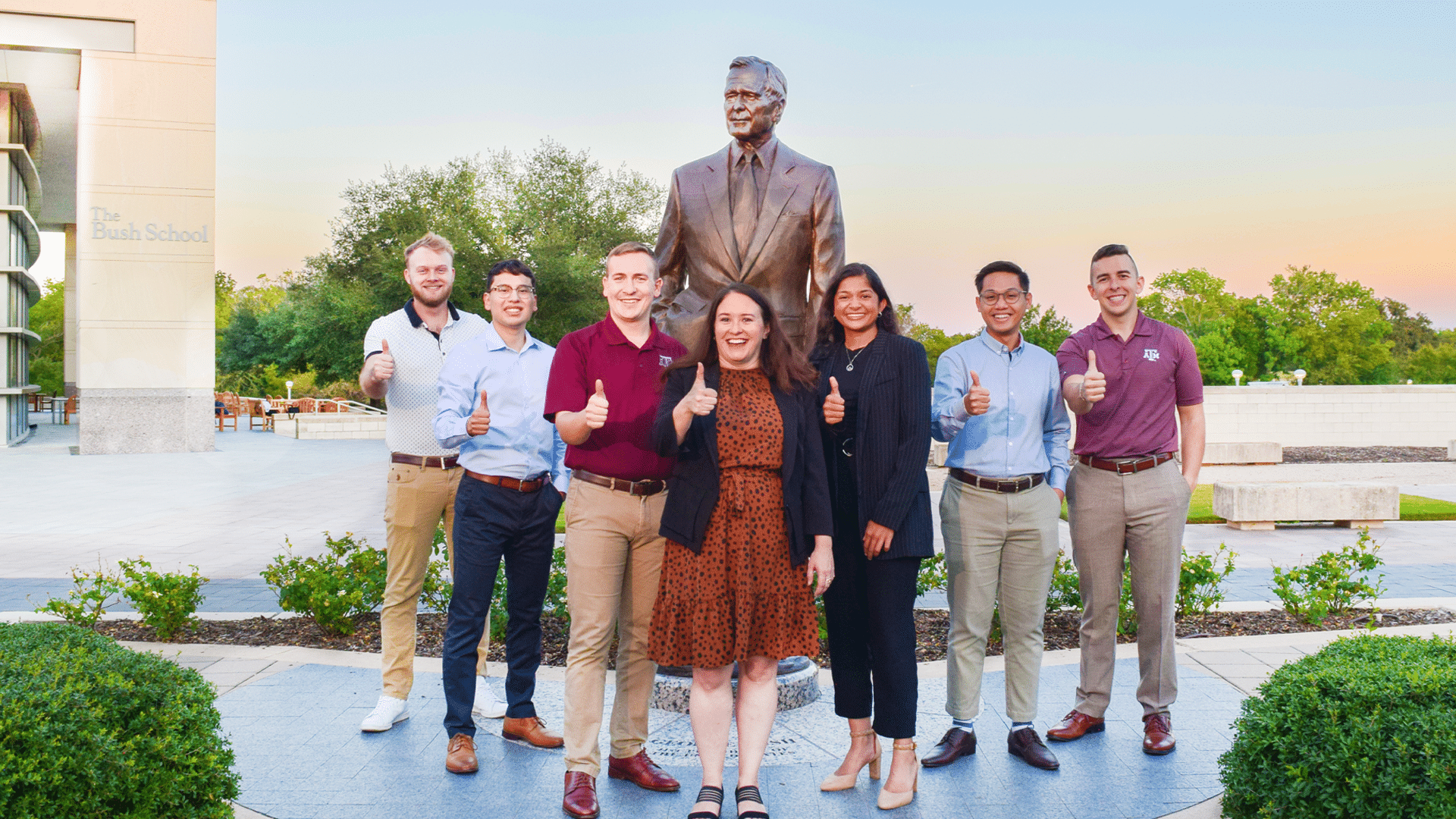Public service is a noble calling. It’s what the world could always use a little more of and what The Bush School of Government & Public Service at Texas A&M University is more than ready to provide.
Placing in the top 10% of US universities for Best Public Affairs Programmes by US News & World Report 2023, The Bush School is dedicated to educating students to make a difference in their communities, states and countries. By balancing academic and practical elements and combining them with the expertise of accomplished faculty, you gain a comprehensive understanding of what excellent public service can be like.
Prime examples lie in the school’s Master of Public Service & Administration (MPSA) and Master of International Affairs (MIA) programmes.
Customisable through tracks and concentrations to develop specialities and the necessary skills, these programmes are where you start your journey to a career that impacts society.

The Bush School’s MPSA and MIA programmes are ideal for those who want to make a difference in their communities and nations. Source: The Bush School of Government & Public Service.
The MPSA, fully accredited by the Network of Schools of Public Policy, Affairs, and Administration, focuses on policy and management at the city and state levels. MPSA students can choose from three tracks: non-profit management, public management, and public policy analysis, as well as a concentration from eight options, like cybersecurity or education policy and management.
Suppose you’re looking for a programme emphasising development, security, or diplomacy at a regional level. In that case, the MIA programme is non-thesis with a core curriculum of five courses, a summer internship or intensive language and cultural study, two tracks (international development and economic policy or national security and diplomacy) and its two concentrations.
Curricula flexibility aside, both programmes require students to undertake a final year capstone project to apply their knowledge and skills in a real-world situation. During this time, students work together under faculty supervision on a problem of interest to a client, usually a government agency or a non-governmental organisation. Examples of past capstone projects include “Strategic Planning: How to Better Serve Children and Families in Need” and “Women, Peace, and Security”.
This is how graduates of the Bush School move on to successful careers.
Between the well-rounded programmes, group capstone projects, and expert faculty, there are opportunities for internships, job talks, international learning experiences, and more. So, it’s no surprise that employment rates average over 90% yearly as graduates leave Bush School confident and equipped with everything they need to progress in the real world. There, they build careers as government officials, public affairs coordinators, policy analysts, audit fellows, education administrators, national security specialists, research associates, project developers, and more.
MIA graduate Devin Lurie says that one of the best aspects of their Bush School experience is applying the practical skills learned in the programme to his workplace.
From delivering concise briefs, taking up leadership roles, and responding to challenging Q&A sessions, The Bush School prepared him well for his current role as a Presidential Management Fellow at the US Internal Revenue Service. “Having experienced colleagues acknowledge those skills is even more gratifying, as we emphasised regular practical training in the programme,” says Lurie.
Another MIA graduate echoes the same sentiment. Chandler Ruis thanks the school’s faculty of expert public servants for delivering a world-class and worthwhile education for those seeking to serve their country and communities.
“The quality of instruction of the school is phenomenal, but so is the community,” says Ruis, now a targeting analyst at IT company IntelliBridge. “You earn a support network that fosters connections academically, professionally, and educationally. The Bush School prides itself on producing the next generation of public servants, and its commitment to that ethos is shown endlessly in how it supports its students.”

The Bush School graduate students fulfil their calling to public service in several organisations and through various means. Source: The Bush School of Government & Public Service.
This support goes beyond the walls of the university too. Upon the end of their programme, graduates join Texas A&M University’s Aggie Network, one of the largest active graduate associations in the world, with nearly half a million students globally — each ready to lend advice and support.
It’s a spirit graduates carry on from their time at The Bush School. Support is key theme that pervades the university — and the MPSA and MIA are no exception. In 2020, the MPSA programme was ranked first in the nation for “best value” by Value College. With scholarships available, international students with average support pay tuition and fees at less than US$14,000 annually, and more competitive applicants pay even less.
“My message to those currently applying or considering applying to The Bush School is that they are likely making one of the best decisions of their lives,” says MPA student Javier Díaz Vázquez. “It doesn’t really matter if we don’t know specifically which government institution we want to serve. As long as we have the feeling of selfless service, it is more than enough to belong here.”
Follow The Bush School on Facebook, Instagram, X, LinkedIn, and YouTube












